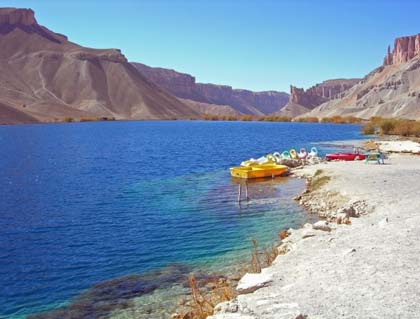KABUL - Afghanistan's Water Law formally introduced in 2009 with a series of "good" water governance concepts as part of a wider attempt to reform the country's water sector. These included integrated water resource management, river basin management and participation in decentralized decision-making via Multi-Stakeholder Platforms (MSPs), AREU paper said on Wednesday.
With this context in mind, a new AREU paper lays out the results of research carried out during the dry year of 2011 in the Taloqan and Lower-Kunduz sub-basins, where the Panj-Amu River Basin Program has piloted the introduction of these imported governance approaches since 2005. In doing so, it attempts to provide a better understanding of how local institutions currently deal with water allocation at the sub-basin level in times of drought, and discusses their policy implications for the current institutional transition.
The research shows that water allocation practices still diverge significantly from the concepts promoted by the Water Law. Contrary to the ideals of decentralization and devolution of decision-making to water users, local government and national actors still play a leading role in shaping water allocation processes.
In addition, it highlights how the MSPs that emerged in 2011 were significantly more flexible and adaptive in their composition than the (as-yet unconstituted) river basin agencies and councils envisioned by the Law. It also underlines how, despite defying "good" governance principles, the institutional arrangements at work in 2011 led to relatively positive outcomes in terms of water access for downstream users, suggesting that a strict application of policy models may sometimes be counter-productive. Nevertheless, the findings also suggest that recent gains remain fragile and reversible. Finally, the authors recommend that stakeholders collectively revisit the governance principles of the Water Law to identify compromises for a realistic translation of theoretical models into workable practices. (PR)

